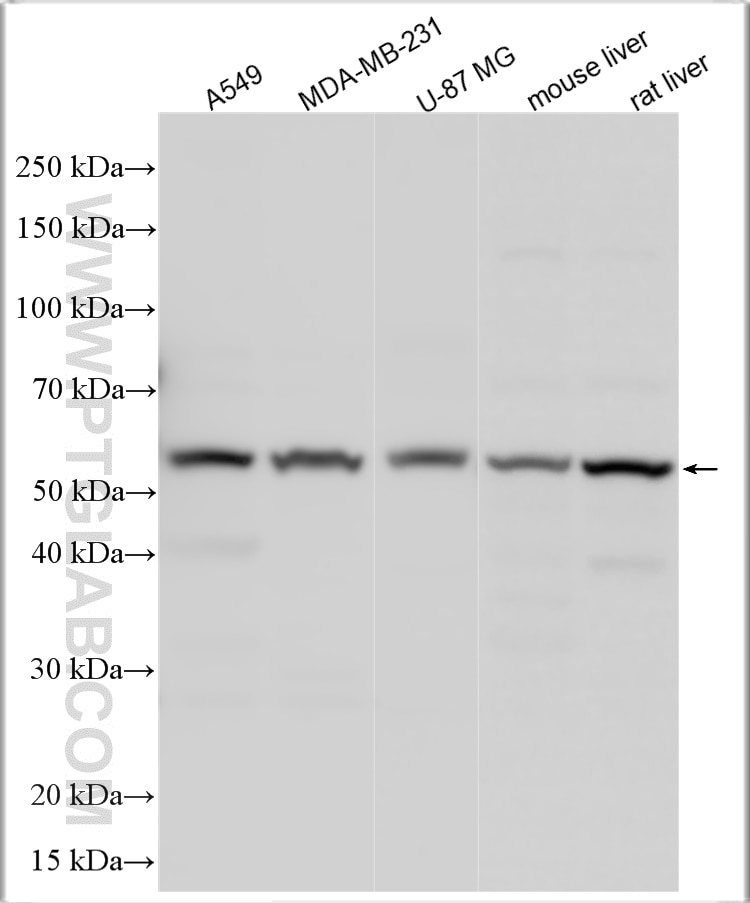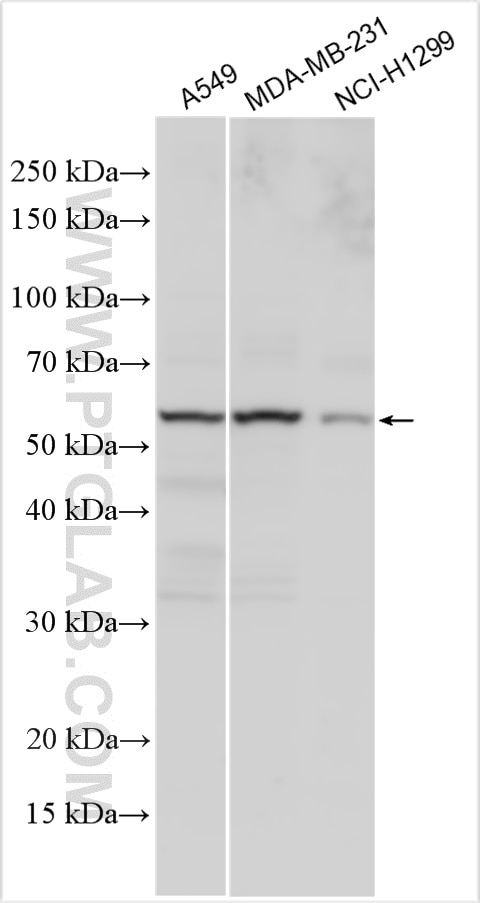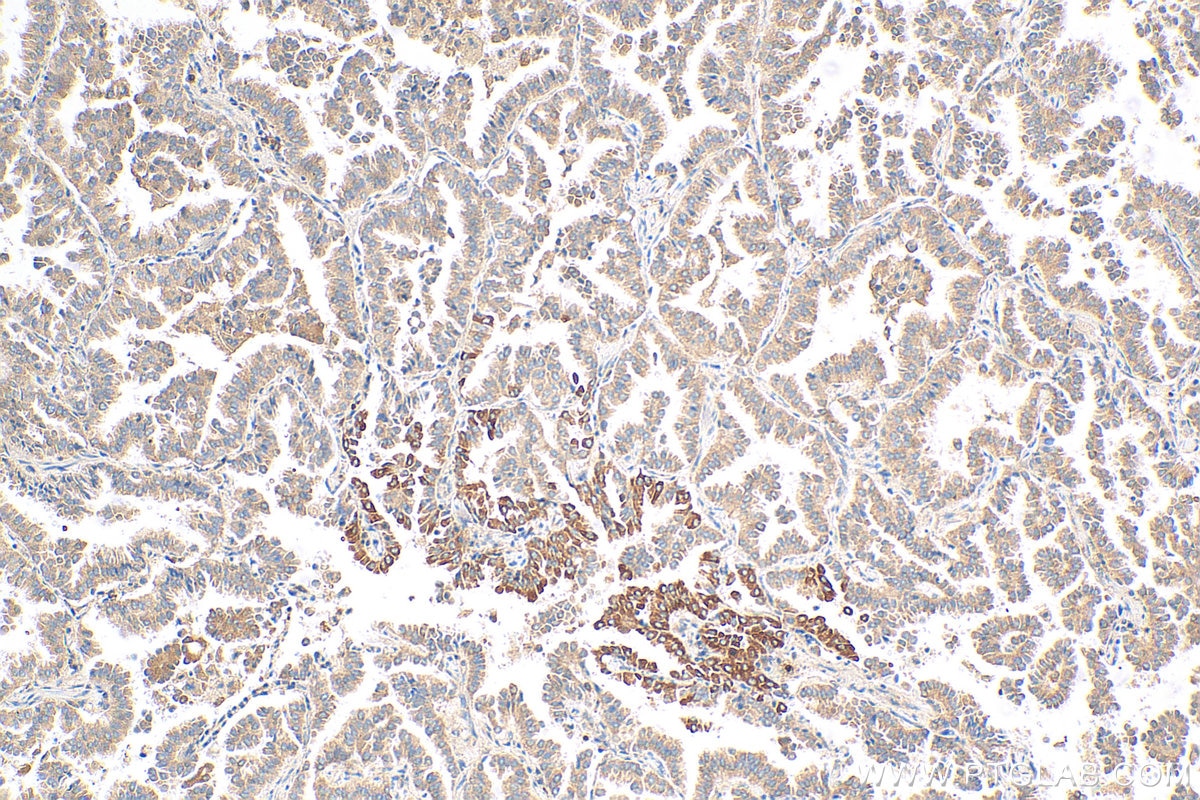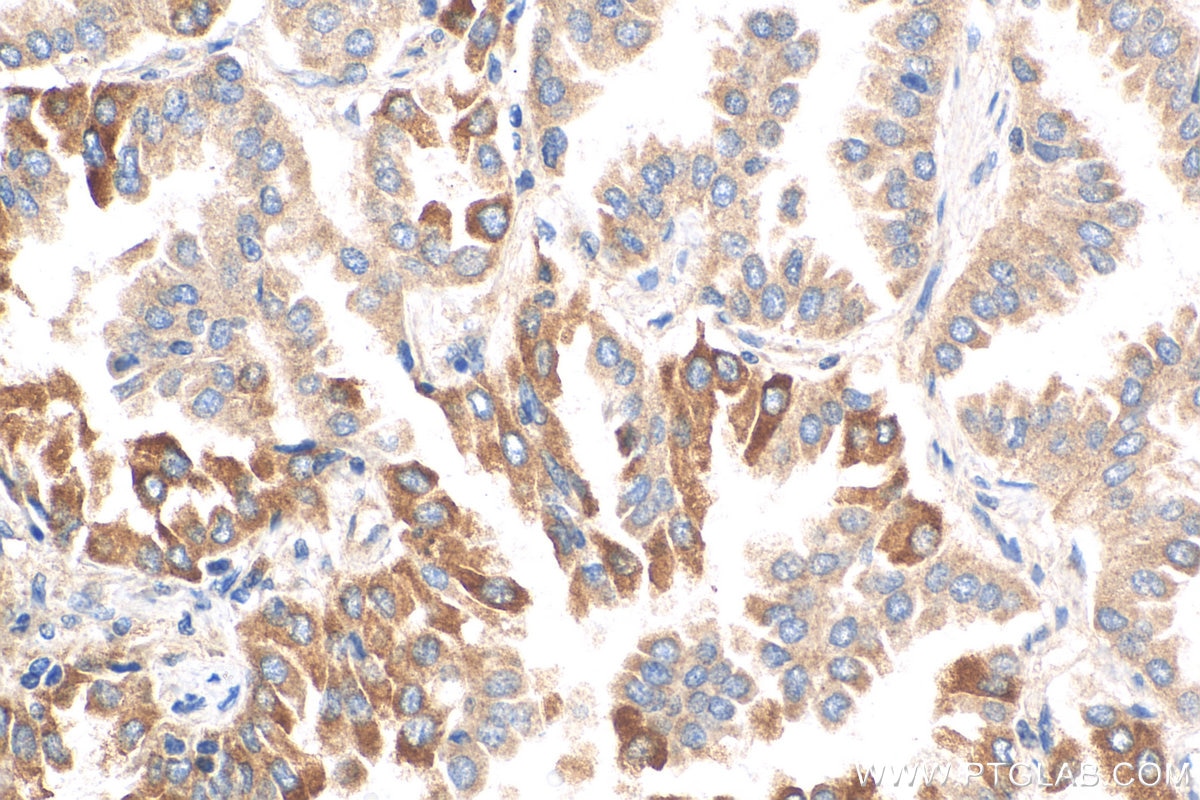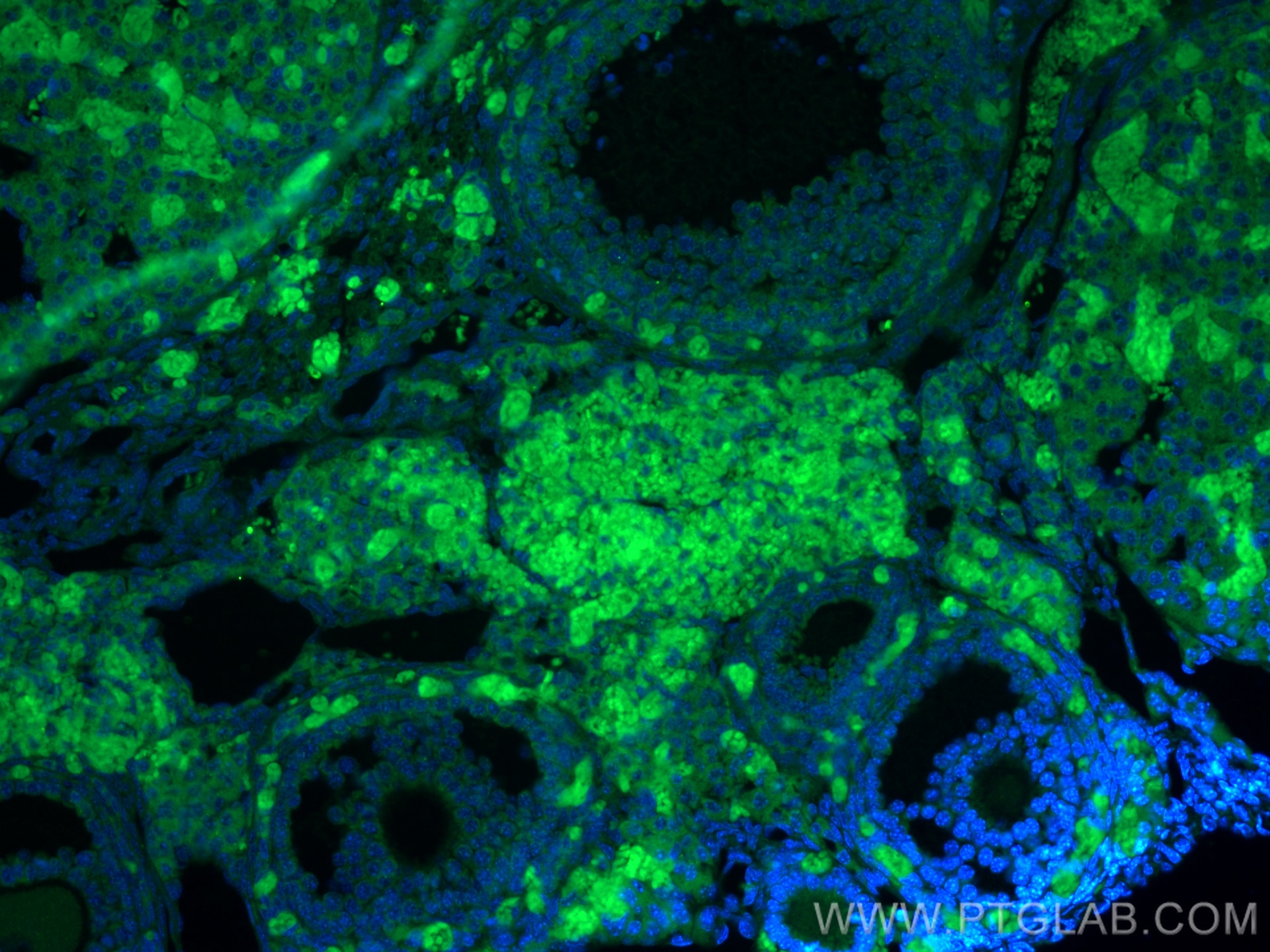TGFBR1 Polyklonaler Antikörper
TGFBR1 Polyklonal Antikörper für WB, IHC, IF-P, Indirect ELISA
Wirt / Isotyp
Kaninchen / IgG
Getestete Reaktivität
human, Maus, Ratte
Anwendung
WB, IHC, IF-P, Indirect ELISA
Konjugation
Unkonjugiert
Kat-Nr. : 30117-1-PBS
Synonyme
Geprüfte Anwendungen
Produktinformation
30117-1-PBS bindet in WB, IHC, IF-P, Indirect ELISA TGFBR1 und zeigt Reaktivität mit human, Maus, Ratten
| Getestete Reaktivität | human, Maus, Ratte |
| Wirt / Isotyp | Kaninchen / IgG |
| Klonalität | Polyklonal |
| Typ | Antikörper |
| Immunogen | TGFBR1 fusion protein Ag31620 |
| Vollständiger Name | transforming growth factor, beta receptor 1 |
| Berechnetes Molekulargewicht | 56KD |
| Beobachtetes Molekulargewicht | 56 kDa |
| GenBank-Zugangsnummer | NM_004612 |
| Gene symbol | TGFBR1 |
| Gene ID (NCBI) | 7046 |
| Konjugation | Unkonjugiert |
| Form | Liquid |
| Reinigungsmethode | Antigen-Affinitätsreinigung |
| Lagerungspuffer | PBS only |
| Lagerungsbedingungen | Store at -80°C. 20ul Größen enthalten 0,1% BSA. |
Hintergrundinformationen
TGFBR1 (TGF-beta receptor type-1) encodes a serine/threonine kinase receptor for transforming growth factor-beta. TGFB1, TGFB2 and TGFB3 signals are transduced from the cell surface to the cytoplasm and regulate lots of physiological and pathological processes including cell cycle arrest in epithelial and hematopoietic cells, control of mesenchymal cell proliferation and differentiation, wound healing, extracellular matrix production, immunosuppression and carcinogenesis. Mutations in both TGFBR2 and TGFBR1 were associated with early onset and aggressive thoracic aortic disease with MFS-like skeletal features, but also hypertelorism, craniosynostosis, developmental delay, cleft palate and bifid uvula, congenital heart disease and aneurysms, and dissections throughout the arterial tree with marked arterial tortuosity (PMID: 15731757, PMID: 27879313).
